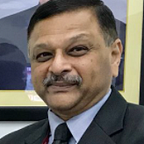Investigation, Prosecution, Appeal and Punishment
(Continuation of the post titled Crime Most Foul)
An enquiry under Police Standing Orders has to be conducted by an Executive Magistrate. Though titled as an enquiry, it involves all aspects of the criminal justice process, namely, investigation and prosecution before a court of law.
Though the special team from the Crime Branch CID (CBCID) was assisting me, all the investigation was conducted in the name of the Executive Magistrate. The first step was to arrest the named accused, which we promptly did. This was necessary since the situation in the local area had become tense and there were serious apprehensions that matters would turn violent if things were allowed to drag.
The accused were presented before a Judicial Magistrate with a request for remand. However, for reasons best known, the magistrate thought it fit not to remand them, but free them on bail.
We were in a soup! The local situation was becoming hotter, with allegations flying fast and thick that the entire enquiry was a sham and that we were protecting the accused.
Working overnight we prepared the grounds of appeal and approached the Public Prosecutor in the High Court at the State Capital, early next day. The latter assured us of his cooperation but the difficulty was that the High Court was celebrating its jubilee that very day and the President of India was to take part in the celebration. The High Court was open for half a day only and we had to get the case mentioned before the Judge during the morning session itself. We rushed to the Court and the Prosecutor managed to convince the Court and get the Bail cancelled.
The Registrar of the High Court was requested to send a Telegram conveying the Court’s order to the Magistrate. To avoid loss of time, a Jeep was kept waiting at the Post Office to transport the postman to the Court. The Telegram reached, but the Magistrate refused to relent until he saw the Court’s written order. So, we went back to the Court to get copies of the Court Order.
Armed with the Orders of the High Court, police parties were dispatched all over the state to secure the accused. After a search, they were located and brought back to the local Court.
Having secured the accused, the investigation proceeded. The crime scene was thoroughly examined by forensic experts and evidence gathered. A Test Identification Parade was also organized. The victim identified the accused as per procedure laid down and after wrapping up the remaining investigation, we were ready with our charge sheet.
The local Assistant Public Prosecutor was conducting the prosecution on behalf of the State, but a complication arose. Proceedings conducted under the Police Standing Orders were, at that time, treated as private complaints and not criminal complaints where the State would prosecute. Thus, it was a case tiled Sub Collector Vs XXX and not State Vs XXX. This I found very odd, since, the enquiry was conducted by an Executive Magistrate in an official capacity. The rationale of treating such proceedings as private complaints is beyond my comprehension.
Finally, the case was committed to the Sessions Court, but not before another drama. A Public Interest Litigation was filed before the High Court demanding compensation for the victim. The Court, in a path-breaking judgement, awarded compensation to the victim, without prejudice to the ongoing criminal trial. This became a big issue in prosecuting the trial as the Defense alleged that the matter had been pre-judged and that this coloured the trial.
Five years had elapsed since the case was filed. I had changed two jobs during that time. Eventually, I was summoned to the Sessions Court and had to give testimony as an Investigation Officer. The examination and cross-examination were exhausting. This again I felt is an anomaly, since a judicial magistrate is never summoned for testimony in any proceeding before a higher Court. Only documents are relied upon at that stage. That an Executive Magistrate, performing his lawful duties should be summoned and subjected to such an ordeal did not seem just to me!
The Trial wore on and I had lost track of the proceedings, till one day, the victim, accompanied by her family members (including her husband and little child) turned up at my door with a box of sweets. They had come all the way to thank me!
I was touched by their gesture and enquired regarding the outcome of the Trial. They informed me that all the accused had been found guilty and sentenced to seven years in prison. However, the accused had preferred an appeal in the High Court.
Caught up in the routine of official work, I again lost touch with the proceedings. A few years later, my colleague in the Secretariat, sent me a letter enclosing an order of the High Court enhancing the sentence to ten years. The Court had also commended the role of the Sub-Collector. The Government had ordered that the commendation of the Court be placed in my Service Record.
Justice was delayed but definitely not denied!
